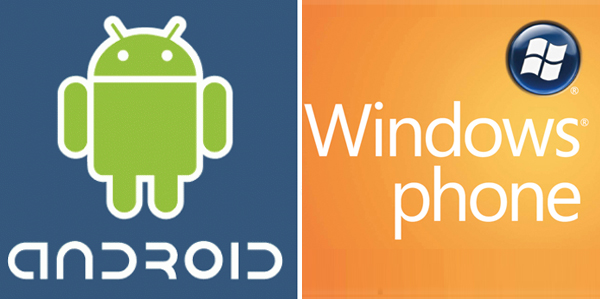
People like choices. Vanilla or chocolate? Oh, wait … maybe strawberry? As individuals, we seek what fits our needs and personality. Clothing, cars, and mobile devices are the consumables that most closely tie to identity.
These items say something about who we are. Since that is so, we spend much time, money, and effort in researching, choosing, and purchasing these accoutrements.
The competition between technology companies drives them not just to innovate but to bring shiny, fun, and new items to consumers in the hope that market share will increase. This makes for a saturated and confusing array of choices.
Let’s narrow it down a bit and compare Google Android versus Windows Mobile.
Pros and cons of Android
Hardware: removable batteries! A common feature, this means a battery problem will not require full replacement of the device. The flip side is that the screens are typically smaller than on other smartphones, which can be problematic as we do more and more transactions from a mobile device. Plus, the camera doesn’t wow with the quality of its pictures.
Software: Android allows users to run multiple applications at once and has excellent integration with Google Apps. However, multiple application use can affect battery life; and despite Google Apps integration, a third party is needed to sync an Android device with a secondary computer.
Apps: Android apps do not have to go through as rigorous a vetting process as, say, Apple apps. This translates into a great niche market for apps, but also comes with quality and security concerns. Because developers prefer to create apps for iOS platform before Android, the number of available apps is smaller.
Pros and cons of Windows Mobile
Hardware: Nokia and Windows partnered up to change their ranking in the mobile market. Both had floundered, and in pairing up, they created beautiful, colorful, and desirable devices. Other brands that run the WIndows Mobile platform, like the HTC, have a similarly pleasing look and feel. Some complaints about button placements are easy to fix and therefore a minor drawback.
Software: Windows changed the world. It’s integrated into the office, home, and schools. Because of this, it’s a familiar platform that feels intuitive to work with as it integrates navigation, notifications, and status.
In essence, it gives out the information you seek quickly. Not too little, not too many alerts, and not too much information. According to reviewers, it is the ultimate “charge the phone and get to work” device.
Apps: Not known for its app development, Windows has faced this hurdle over and over again. Instead of developing the same versions for their platform, Microsoft turned to a company that essentially translated apps from other platforms to the Windows platform.
In conclusion, both devices have pros and cons so you will base your decision on personal preferences. For a grab-and-go experience that is more familiar, Windows is probably the best bet. For the household that is Android Platform-centric, the choice is equally easy.
Whichever fits you best, an informed consumer is a smart consumer, so do a little homework and don’t be shy of getting up to speed with a little training.

